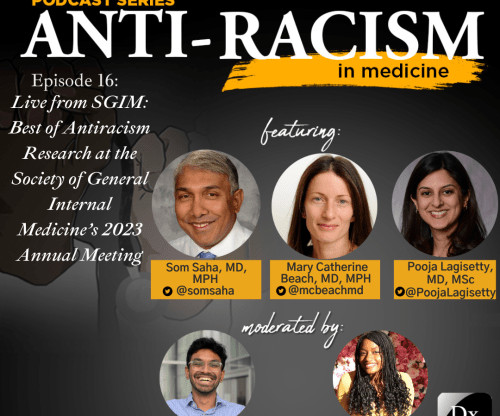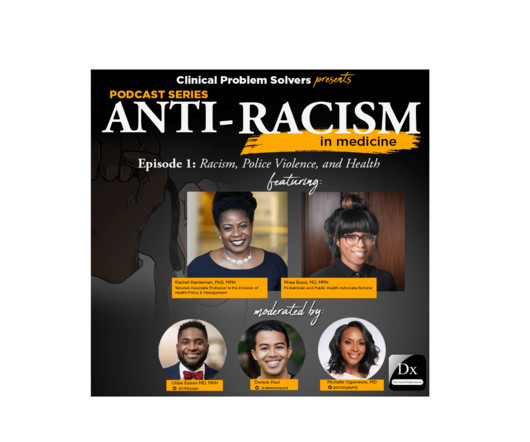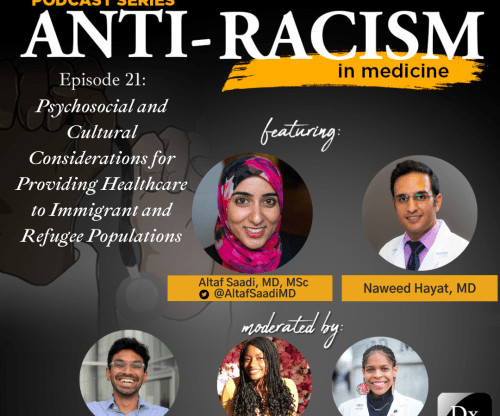Episode 293 – Antiracism in Medicine Series – Episode 22 – Live from SGIM 2023: Best of Antiracism Research at the Society of General Internal Medicine’s 2023 Annual Meeting
The Clinical Problem Solvers
JUNE 26, 2023
Saha’s research focuses broadly on the influence of race and racism in the doctor-patient relationship, its relation to disparities in the quality of health care, and its implications for diversity in the healthcare workforce. He has also served as a Council member and Secretary of SGIM. She also is the 2017 recipient of the George L.











Let's personalize your content